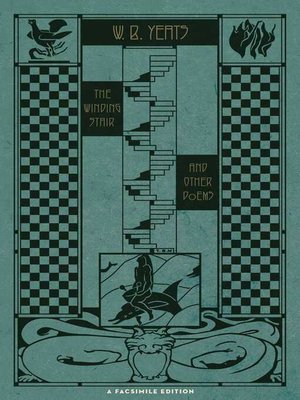
Sign up to save your library
With an OverDrive account, you can save your favorite libraries for at-a-glance information about availability. Find out more about OverDrive accounts.
Find this title in Libby, the library reading app by OverDrive.



Search for a digital library with this title
Title found at these libraries:
| Library Name | Distance |
|---|---|
| Loading... |
An exact facsimile of the 1933 first edition of W.B. Yeats's The Winding Stair and Other Poems, a famously beautiful, elegant volume intended as a companion to The Tower—with an introduction and notes by the eminent Yeats scholar George Bornstein.
This Scribner facsimile edition reproduces exactly the pages of the elegantly planned and designed first edition of The Winding Stair and Other Poems as it first appeared, including a photo of the cover design on which Yeats collaborated. It adds an introduction and notes by celebrated Yeats scholar George Bornstein.
Yeats's longest separate volume of verse, it features sixty-four poems written in the late 1920s and early 1930s. Among them are such masterpieces as "Blood and the Moon," "Byzantium," the Coole Park poems, "Vacillation," and two separately titled long sequences ending with the exquisite lyric "From the 'Antigone.'" These poems amply justify T. S. Eliot's contention that Yeats was one of the few poets "whose history is the history of their own time, who are a part of the consciousness of an age which cannot be understood without them."
This Scribner facsimile edition reproduces exactly the pages of the elegantly planned and designed first edition of The Winding Stair and Other Poems as it first appeared, including a photo of the cover design on which Yeats collaborated. It adds an introduction and notes by celebrated Yeats scholar George Bornstein.
Yeats's longest separate volume of verse, it features sixty-four poems written in the late 1920s and early 1930s. Among them are such masterpieces as "Blood and the Moon," "Byzantium," the Coole Park poems, "Vacillation," and two separately titled long sequences ending with the exquisite lyric "From the 'Antigone.'" These poems amply justify T. S. Eliot's contention that Yeats was one of the few poets "whose history is the history of their own time, who are a part of the consciousness of an age which cannot be understood without them."







